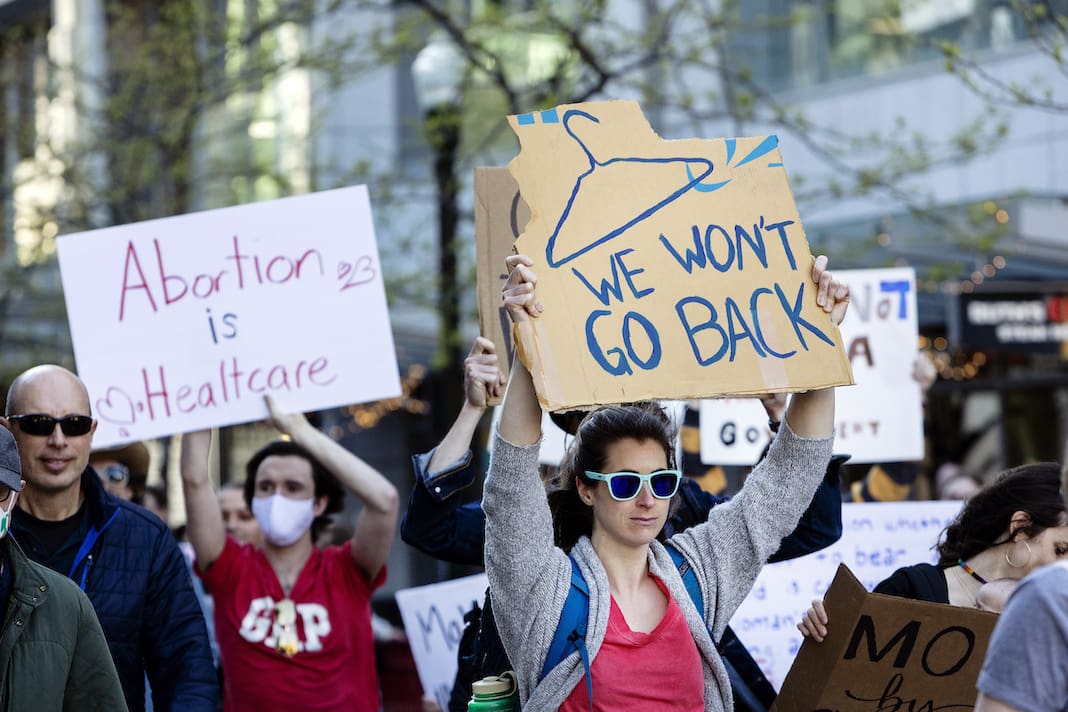Alabama House Democrats introduce bill to protect contraceptive access
Alabama House Democrats filed a bill in the House last week to protect access to birth control.

Alabama House Democrats filed a bill in the House last week to protect access to birth control.
HB 279, sponsored by House Minority Leader Anthony Daniels, D-Huntsville, would establish the right of individuals to use contraception and allow health care providers the right to distribute contraceptives and offer guidance on their usage.
This bill outlines measures for enforcing these rights by allowing the state attorney general, health care providers, and individuals to initiate civil lawsuits related to enforcement of any laws, regulations, or policies that prevent the distribution and usage of contraceptives.
Daniels said in a Monday interview that laws that “we clearly understood [are] in jeopardy” in Alabama. He said that he would never have thought that a frozen embryo would be considered a child, but the state Supreme Court ruling on in vitro fertilization left him wondering, “What’s next?”
“They’re coming for everything, and our freedom, as we know it, is in jeopardy,” Daniels said.
The bill has been referred to the House Judiciary Committee but has not been heard yet. Rep. Jim Hill, R-Odenville, chair of the committee, could not be reached for a comment.
The legislation is unlikely to come to a vote in the Republican-controlled Legislature but reflects the emergence of reproductive issues in the 2024 election and Democrats’ growing willingness to push on the topic. Daniels, who is running for Alabama’s 2nd Congressional District, was the first Alabama lawmaker to introduce a bill to address the state’s Supreme Court ruling before introducing a constitutional amendment that he argued is the only way to address the issue.
Daniels said that he doesn’t see IVF treatment as a partisan issue, but he does want other states to understand “warning shots” from Republicans, such as when they passed the near-total abortion ban that became law as a result of the U.S. Supreme Court decision on Dobbs v. Jackson Women’s Health Organization.
“No one in the chamber ever imagined that Roe v. Wade would be overturned, but it was overturned. And because we passed a law with one of the most restrictive abortion bans in the actual country, we’re stuck with that,” Daniels said.
Republicans have struggled to unite behind a position, both in Alabama and nationally. House Speaker Nathaniel Ledbetter, R-Rainsville, took about a week to issue a comment on the ruling After both chambers passed the IVF bill to give immunity to providers and patients, Ledbetter said in a press conference that “was probably as much of a pro-life piece of legislation that [the Legislature] ever passed.”
Sen. Tim Melson, R-Florence, who sponsored the bill in the Senate, when asked why not address an embryo’s personhood in the legislation, said that he didn’t want to put fellow lawmakers in an uncomfortable position.
A recent survey by Americans for Contraception suggests that 80% of voters from across the political spectrum view access to birth control as being under threat while 72% expressed a positive attitude towards birth control.
With Alabama’s near-total abortion ban, access to contraception is a challenge as the state lacks policies making contraception easier. This disproportionately affects uninsured and low-income women, who have limited options for affordable birth control.
Reproductive health organizations in the state have struggled to provide services due to cost barriers. Although some clinics offer reduced-cost services, they face financial strain without access to discounted pharmacy programs.
Robin Marty, executive director of the West Alabama Women’s Center, a former abortion clinic that now provides reproductive health care to low-income individuals, said this is an important bill to ensure that birth control isn’t the next thing that becomes illegal.
She said that contraception has been tied to the personhood argument because of how people, especially conservative lawmakers, assume how birth control works. She said previous research indicated that reduced or thinned uterine lining could affect an already fertilized egg, but Marty said more recent research indicates that it prevents fertilization by holding off ovulation, by making changes to the mucus so sperm can’t reach the egg, or making the cervix not open during your fertile time.
“It’s all the same to them. It doesn’t matter if it’s regular hormonal birth control pills. It doesn’t matter whether it’s the IUD that doesn’t actually have hormones in it. It’s all the same because it all goes back to this idea of sex should only exist [within a marriage],” she said.
While Marty said the bill was “fantastic” and ensures people have access to birth control, it doesn’t mean much if people still don’t have access to health care.
“Many people don’t have access to doctors, and we frankly still don’t have access to free or low-cost contraceptives in every single area of the state,” she said.
As long as Title X funds, federal funding for reproductive health services, are only allocated to public health departments in Alabama, limiting accessibility. Marty said that without those funds going to organizations working to provide birth control, the problem will persist.
Rep. Neil Rafferty, D-Birmingham, one of the bill’s sponsors, said the IVF ruling from the Supreme Court “has opened up a whole can of worms,” and that since Roe v. Wade was overturned, there’s been “a hodgepodge of anti-choice legislation come through that would prohibit certain measures and controls and bodily autonomy.”
“In the meantime, we need to be on the ball and making sure that all these family planning options, that are once again very popular with all the people of Alabama, stay legal and are not taken away from these families,” Rafferty said.
This story was originally published in the Alabama Reflector
Recommended

Fate of ‘game changer’ women’s health care bill in hands of Missouri Senate
A bill that would improve health care access for Missouri women almost died in the House after some lawmakers conflated birth control legislation with abortion medication
By Anna Spoerre, Missouri Independent - May 08, 2024
Trump leaves door open to banning medication abortion nationwide
Donald Trump is planning to release more details in the weeks ahead about how his administration would regulate access to medication abortion, according to comments he made during a lengthy interview with Time magazine published Tuesday.
By Jennifer Shutt, States Newsroom - April 30, 2024
Ohio doctors fear effects of emergency abortion care case set to go before U.S. Supreme Court
A federal law that allows emergency departments to treat patients without regard to their ability to pay will be under U.S. Supreme Court scrutiny this week, and Ohio doctors are concerned about the case’s local impact on emergency abortion care.
By Susan Tebben, Ohio Capital Journal - April 23, 2024







































































